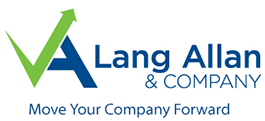Even a successful and growing small business may be asked for an audited financial statement by a banker, investor, creditor, or buyer. These third parties often want some assurance that the financial statements provided by your business are reasonably accurate and free of any major oversights or material errors.
It often comes down to understanding the difference between a compilation, which is likely what you have been doing, and a review.
Consider the differences:
Compilation: Your outside accountants have assisted you in the presentation of financial statements according to certain rules and procedures. It is important to note that these accountants are not providing any assurance with a compilation.
A compilation may be useful for you, but third parties, such as banks, may want a greater level of assurance. For example, if you seek a substantial loan, you may need a review.
Review: This provides some assurance. It is the most common form of assurance of financial statement accuracy for small businesses. It’s not an audit — it is much less extensive and provides limited assurance that your financial statements are basically in conformity with generally accepted accounting principles (GAAP).
A review is more thorough than a compilation. It is considered the base level of CPA assurance services. In a review engagement, your CPA is required to understand your industry, including its accounting principles and practices. An accountant obtains knowledge about you — your business and the accounting principles and practices. This identifies areas where material misstatements may arise.
In a review, a CPA performs analytical procedures and inquiries to obtain limited assurance about financial statements that are intended to provide a user with a level of comfort about their accuracy. It’s substantially narrower in scope than an audit is, but it still may be suitable for your purposes.
As explained by the American Institute of CPAs, compilations are “intended for use by lenders and other outside parties who may appreciate the business’s association with a CPA without requiring a level of assurance on the accuracy of financial statements.” A review, however, is “intended to provide lenders and other outside parties with a basic level of assurance on the accuracy of financial statements.” It may be necessary when you’re seeking extensive financing.
You may have questions about whether a compilation or a review would be suitable for your business.
Give us a call to discuss your business, your particular situation, and which services are most appropriate.
